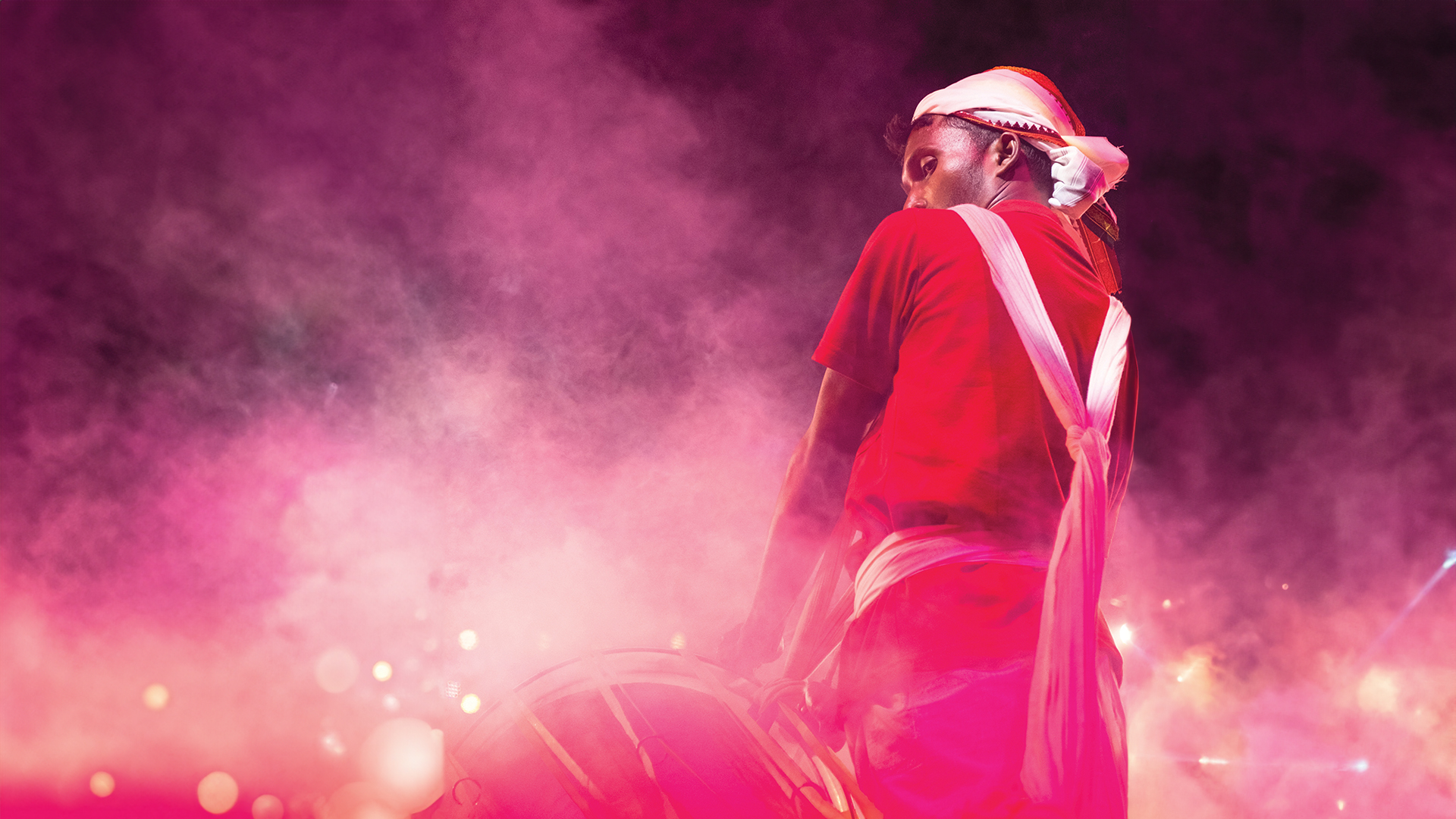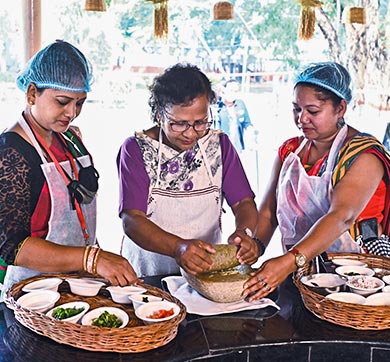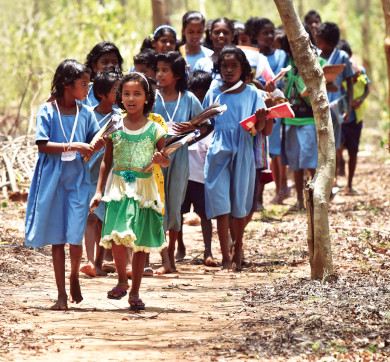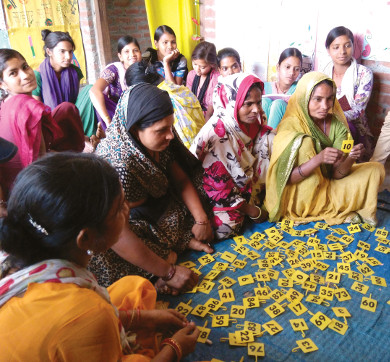February 2024 | 1399 words | 5-minute read
The resounding rhythms of 351 Nagadas, punctuated by welcoming calls of johar, reverberated in the heart of Jamshedpur on November 15, 2023. It signalled the commencement of the 10th edition of Samvaad — a tribal conclave enabled by Tata Steel Foundation.
India is home to the second-largest tribal population in the world, and over the past decade, hundreds of its tribes and their myriad ways of life and expression have taken centre stage at Samvaad. “40,000+ people, from 200+ Indian tribes spanning 25 states and five union territories of India have joined this journey,” says Sourav Roy, Chief Executive Officer, Tata Steel Foundation. “They have given us the privilege to walk with them; they have walked with us; they have walked with each other in the journey of Samvaad. This year, with the theme ‘Walk with Me’, we tried to understand what we can learn from this journey together and where is this going?”
We join the journey.
2014 | Sowing seeds
Samvaad was born on November 15, 2014, in Jamshedpur — the first tribal conclave by an Indian corporate house. It commemorated the birth anniversary of tribal freedom fighter Birsa Munda by creating a platform for the tribal people of India to come together for free dialogue, a celebration of identity and heritage, and a kinship of solutions.
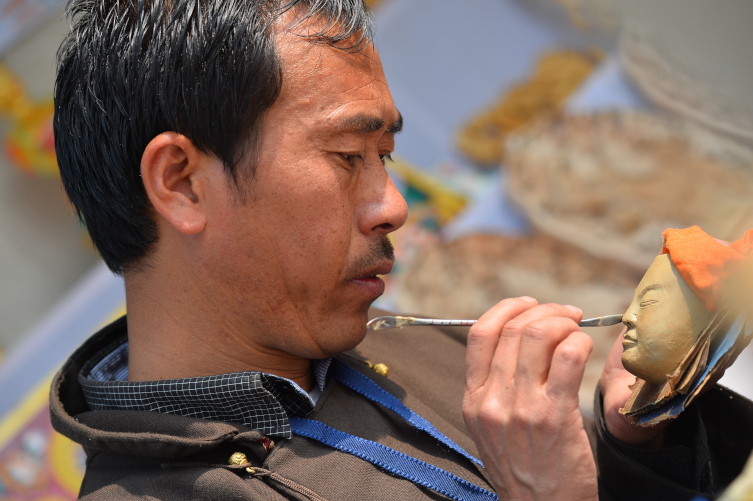
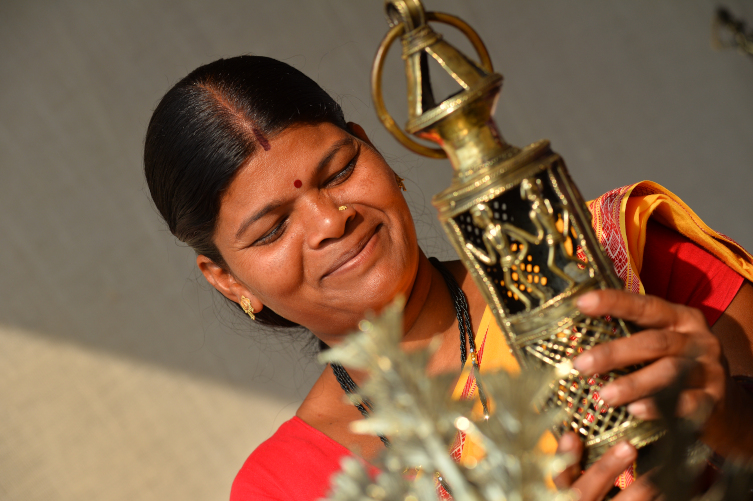
The four-day festival was attended by 2,000+ tribals from 40+ different tribes from 19 states across India, sowing the seeds for cross-pollination of ideas, documentation and preservation of a body of knowledge that runs the risk of being obliterated; understanding the issues of tribal communities; and creating empathy among non-tribal people to remove prejudices. Alongside these, it presented an opportunity for tribal artistes to showcase their rich traditions of art and handicrafts and revel in their music and dance forms.
It also marked the deepening of Tata Steel’s relationship with the tribal community — spanning 100+ years — from one of shared history to shared context.
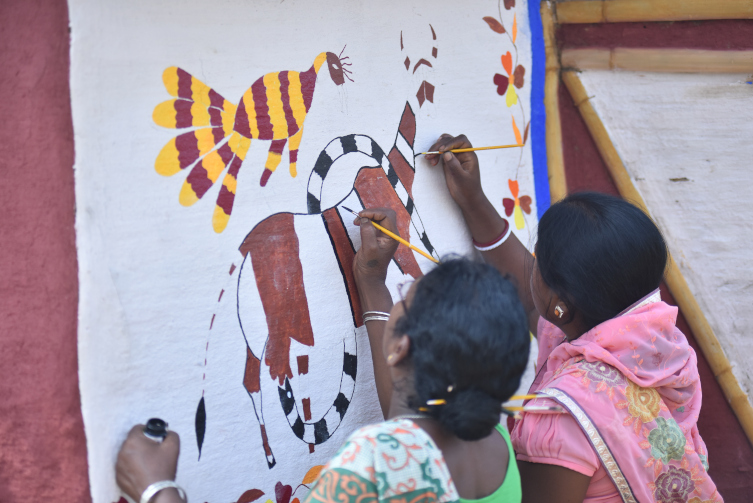
2015 | Growing roots
Samvaad returned with ‘Tribal Languages and Literature’ as its theme. While two tribal languages, Santhali and Bodo, are recognised by the Indian constitution, the tribes of India write in several languages and speak even more. There are also many tribal languages that haven’t survived the ravages of time, taking away with them lessons of history, knowledge and culture.
Tata Steel, which also runs centres where tribal youth can learn and, thus, preserve their languages, shone an effective light on the issue amid 1,500 tribal artists, leaders and activists from at least 40 different tribes, spanning the expanse of the country from the hills to the islands.
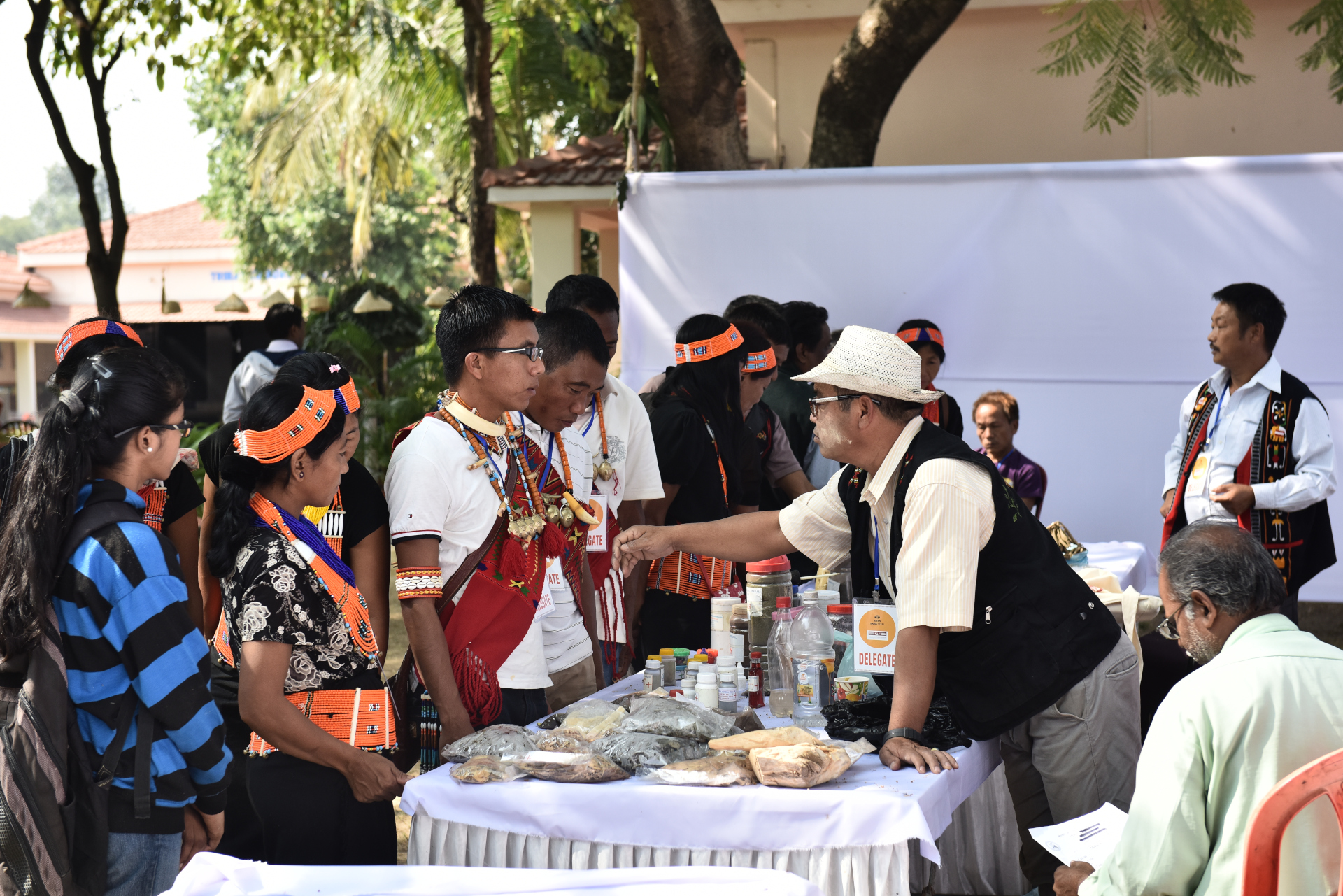
2016 | Taking wing
In its third year, Samvaad ventured beyond the steel city with Regional Samvaads. As more participants began to make themselves heard, the conclave began to live up to its role as an empowering forum.
The Regional Samvaads set the ground for the third edition in Jamshedpur — this time spread across five days — with a focus on ‘Tribal Health Systems’ and the underlying treasure trove of tribal wisdom. The edition also cast a spotlight on traditional tribal attire and provided a stage for a fusion of tribal music forms.
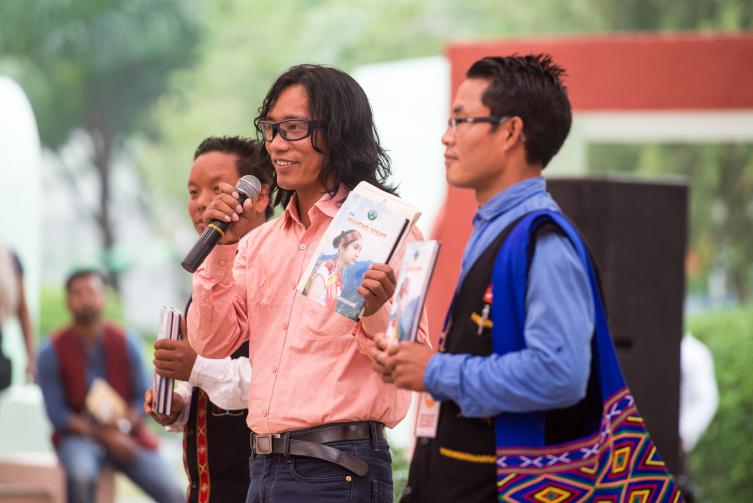
2017 | The transformation
Centred on the theme of ‘Aspirations of Tribal Youth and Leadership for Future’, Samvaad 2017 marked several firsts.
It drew tribal representatives internationally from Australia, Canada, Kenya, Laos and Zimbabwe.
It brought tribal sports into the limelight with action-packed Naga wrestling (Chakhesang tribe, Nagaland), Hambi Kepathu (Karbi tribe, Assam), Kati (Santhal tribe, Jharkhand and Odisha) and Sekkor (Ho tribe, Jharkhand).
And it introduced the Samvaad Fellowship to identify future youth leaders of tribal India and enable them to conserve indigenous practices that are not part of a large conservation effort, thus, running the risk of being lost. It set a new generation of tribals on a quest to protect their heritage and take their lineage forward.
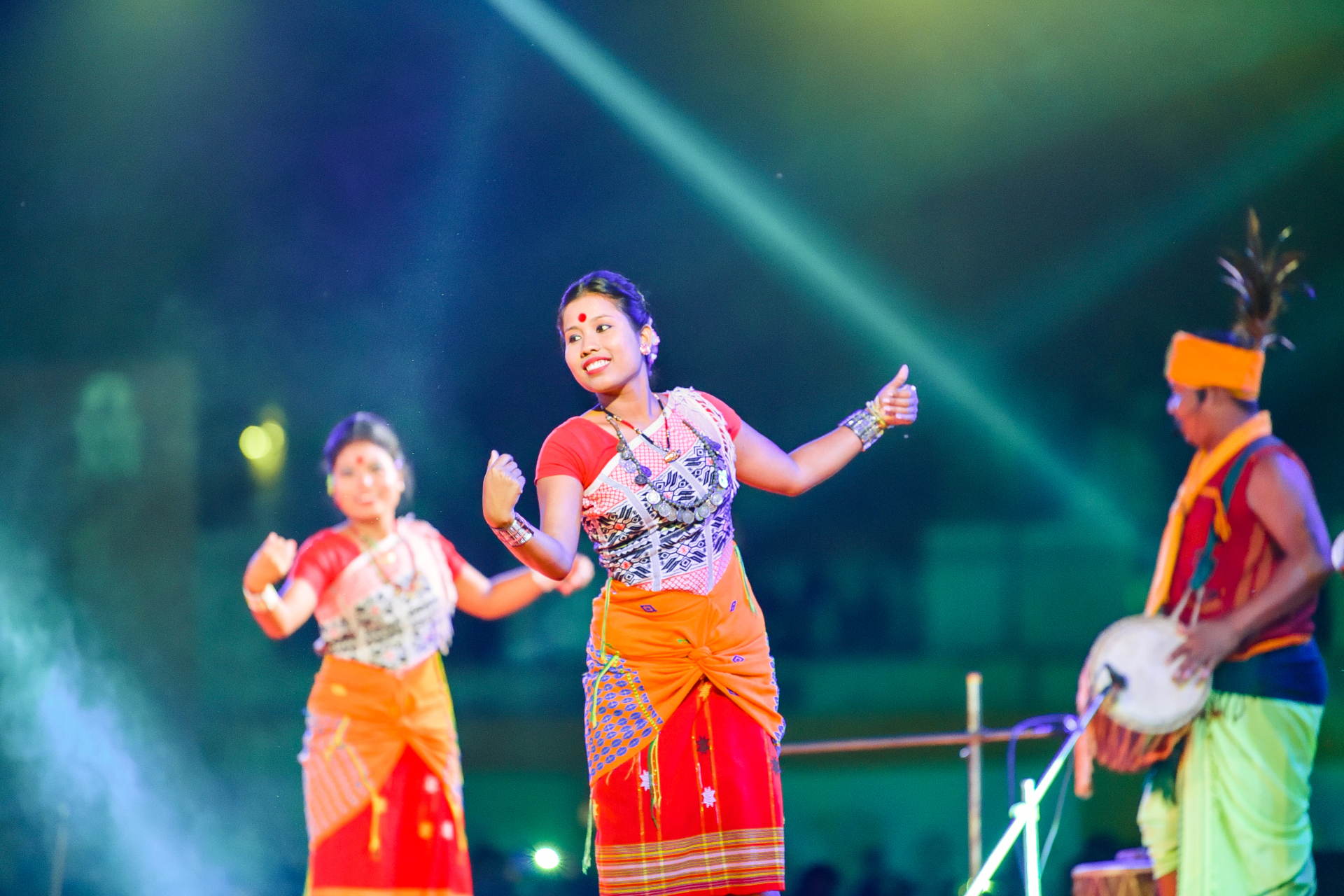
2018 | The trust
The fifth year saw the number of Regional Samvaads grow to six and an increase in international participation with tribal representation from 11 countries.
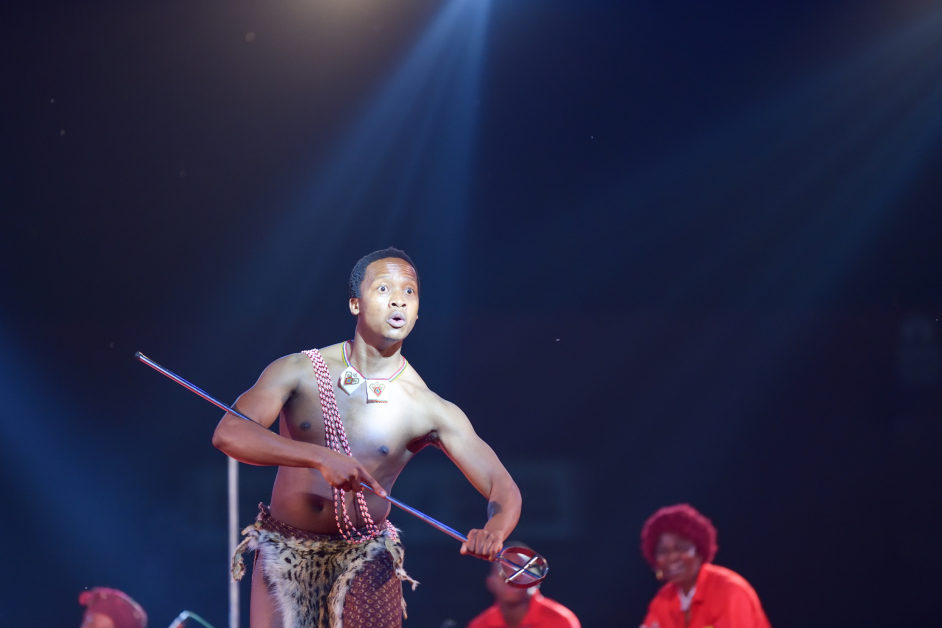
Set around the theme of ‘Coming Together for Social Change’, this edition witnessed a robust exchange of thoughts on critical issues affecting tribal communities and explored an alternative perspective on development. While the mornings were reserved to understand some incredible stories of collective action, the evenings were a one-of-a-kind celebration of tribal music, art, craft, cuisines and healing practices.
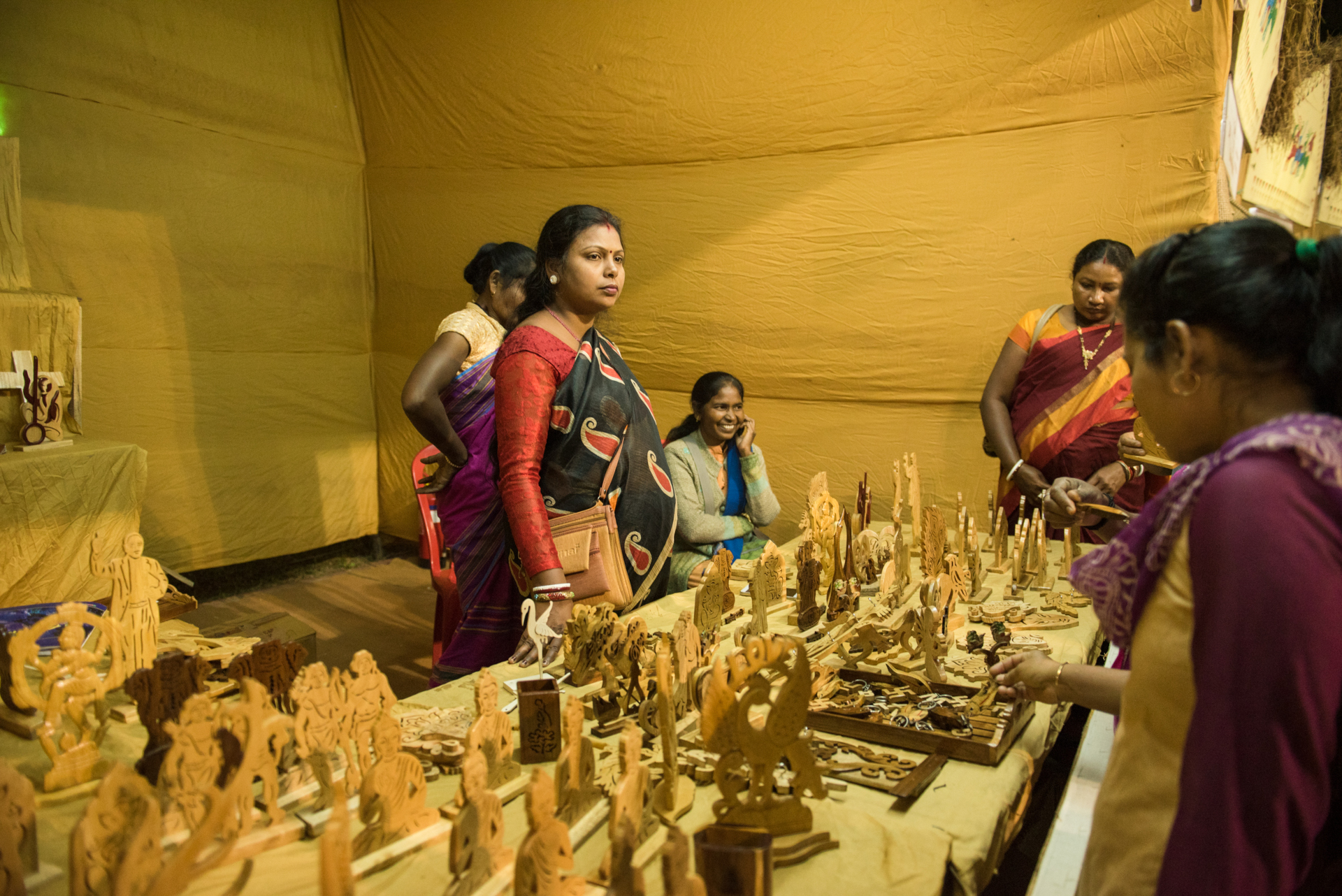
2019 | A way of life
What does ‘Tribalism Today’ look like? The answer to this, the theme of the sixth edition of Samvaad, lay in its many parts.
Soul-searching deliberations and shared learnings from collective struggles, sacrifices and successes among tribal communities. Workshops on government policies for startups to show the tribes the road ahead into entrepreneurship. Immersion in tribal culture through their handicrafts, healers, and food outlets and cultural performances. Each instrumental in its own way in shaping mainstream thinking on the tribal way of life and the tribal development discourse in the country.
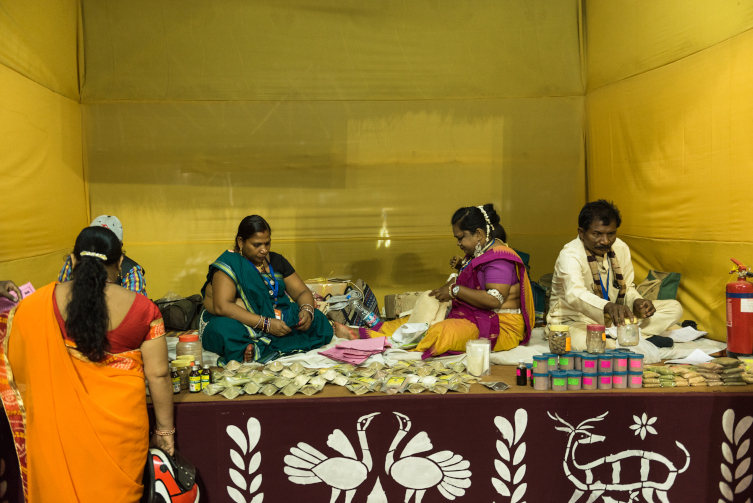
Samvaad 2019 concluded having engaged with 2,000+ participants from 166 tribes from across 30 Indian states and union territories and 13 international locations, and having provided a genuine sense of the tribal way of life.
2020 | Conversations must continue
The seventh Samvaad kicked off amidst the pandemic by taking the conversations and celebrations onto digital platforms. The conclave revisited the theme of ‘Coming Together for Social Change’ with a greater convergence of tribes — 3,000+ people of 114 tribes from 23 Indian states and five union territories, and 17 countries, including Sri Lanka, South Africa, Nepal, Kenya, Philippines, Thailand and Tanzania, participated.
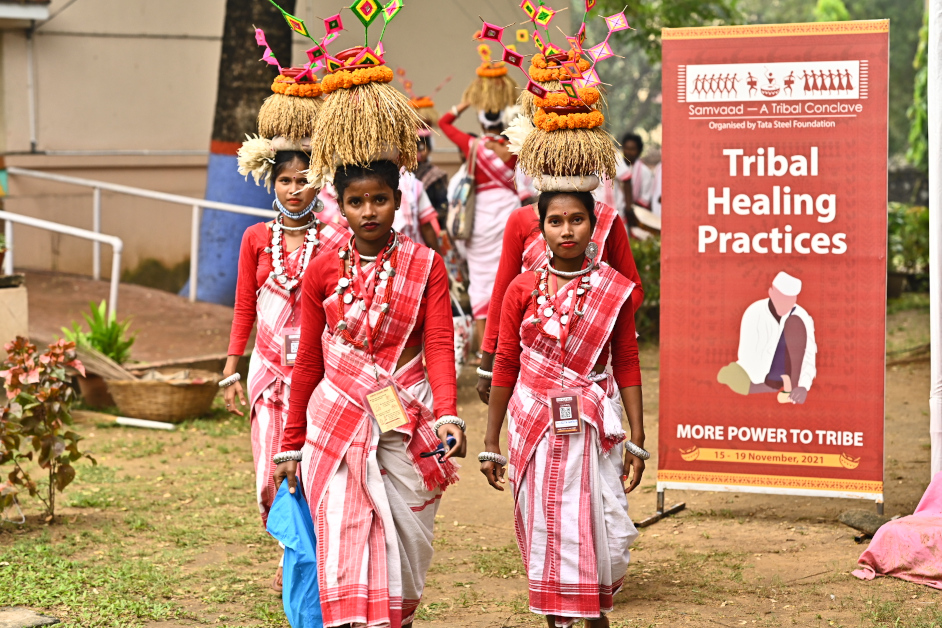
2021 | Reimagined bridges
Samvaad 2021 brought together 4,000+ people from tribal communities in a bridgital format. With the theme of ‘Reimagine’, the conclave presented an opportunity for the tribal ecosystem to reflect on what their communities envision their future to be, co-design new solutions, find a collective voice and drive lasting transformations through the tribal way of life.
This year also saw the first Samvaad Artisans’ Residency, bringing together 23 artists onto canvases that combined 13 tribal art forms.
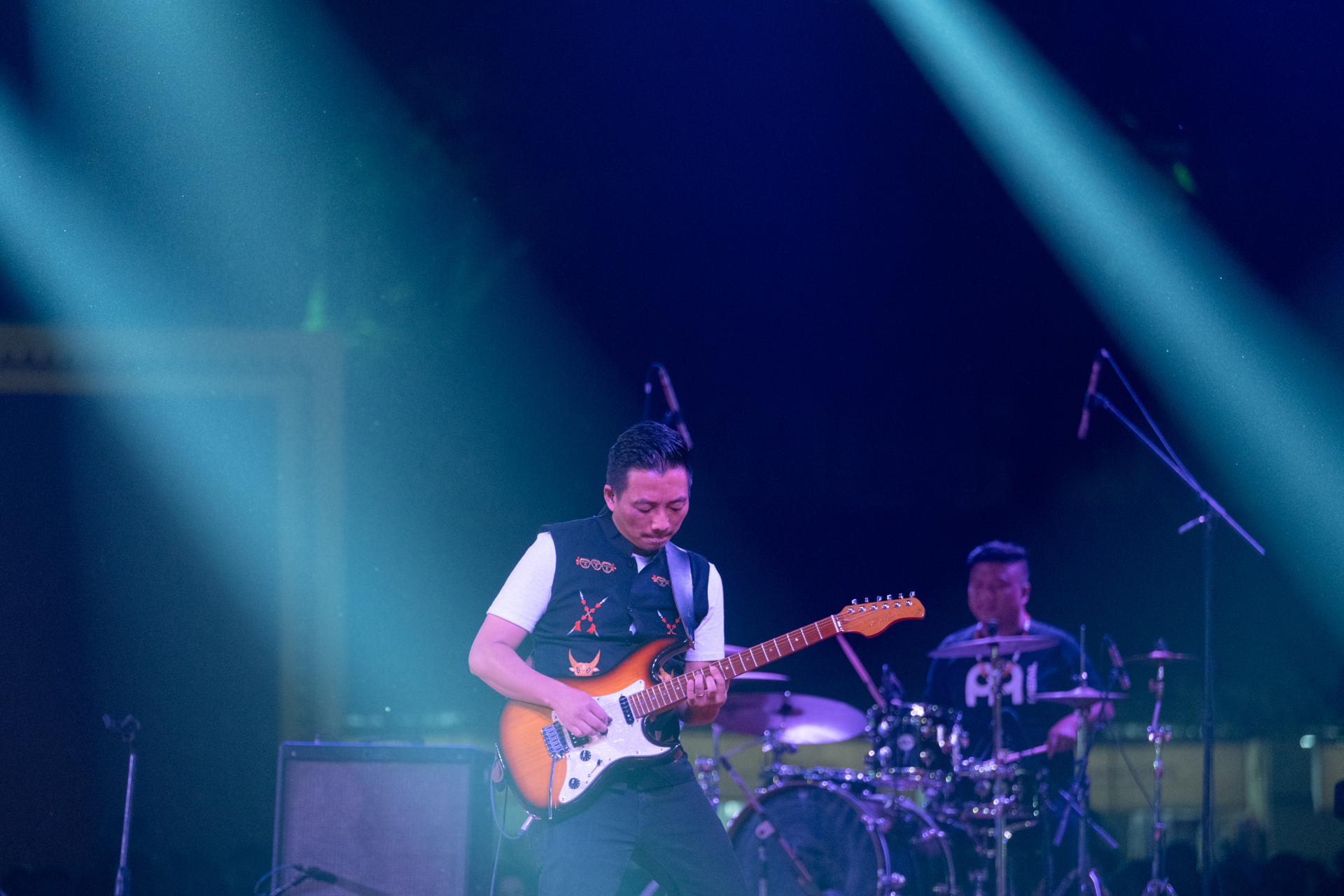
2022 | The power within
Reconvening offline after the pandemic, the ninth Samvaad hosted 2,000+ people, representing around 200 tribes, including 27 particularly vulnerable tribal groups, from 23 states and four union territories. It continued the theme of ‘Reimagine’ from the previous year to listen to voices from the communities as to what this reimagination entails for them and foster deeper conversations around the role of tribal people in enabling social change.
This edition also brought to stage Rhythms of the Earth, a tribal music collective, with its debut album. The ensemble has given tribal musicians from across the country the opportunity to breathe new life into their dying musical traditions and even pursue their art professionally.
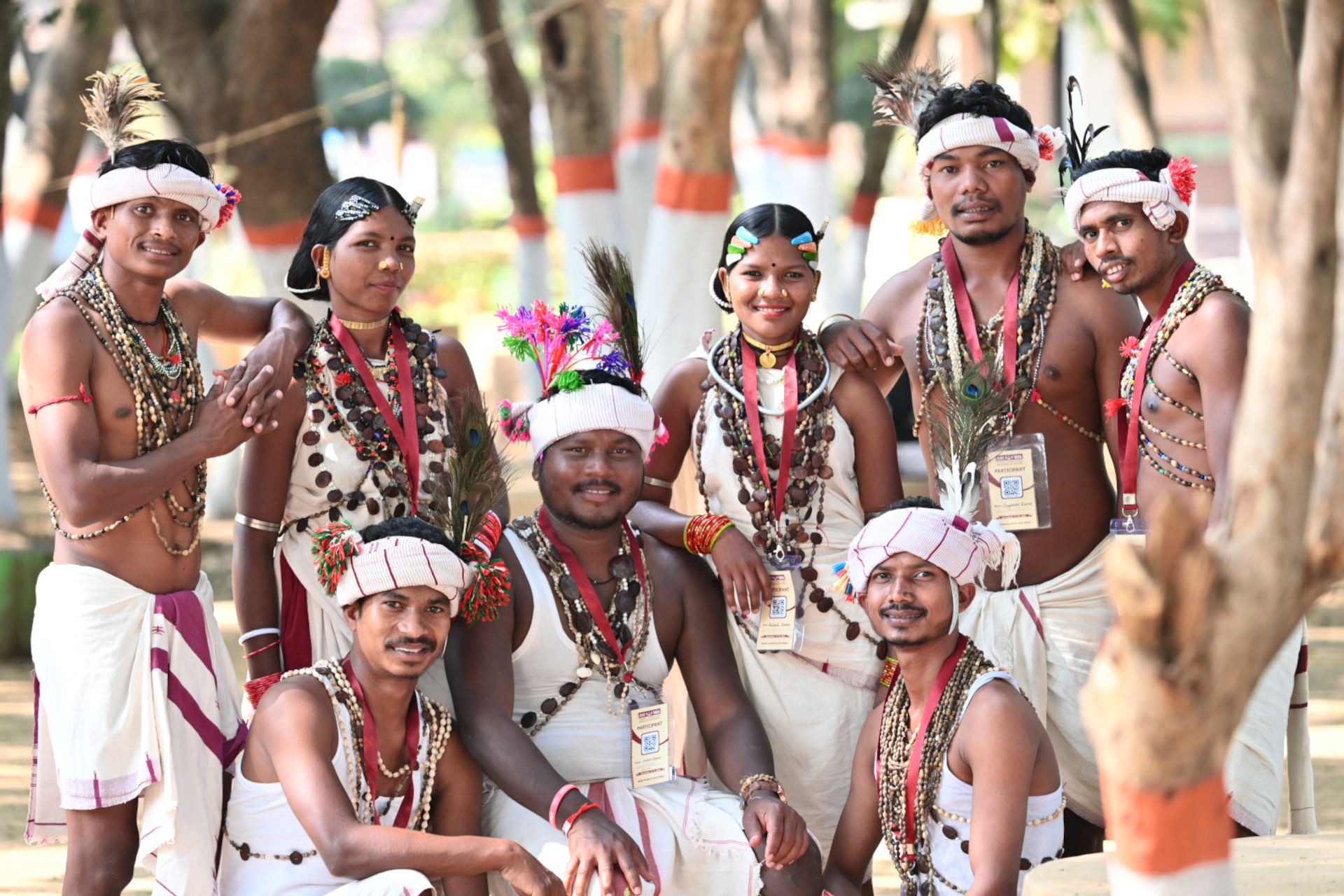
2023 | SAMVAAD@10
What does development mean for tribal communities? Samvaad, which has evolved into one of the largest ecosystems on tribal identity over a decade, has helped not just the Tata Steel Foundation but also many tribes of India understand that. The theme of the 10th Samvaad, ‘Walk with Me’, recognised this journey of ideas and collectives from and amongst the tribes themselves, and how they are poised to resolve the challenges ahead.
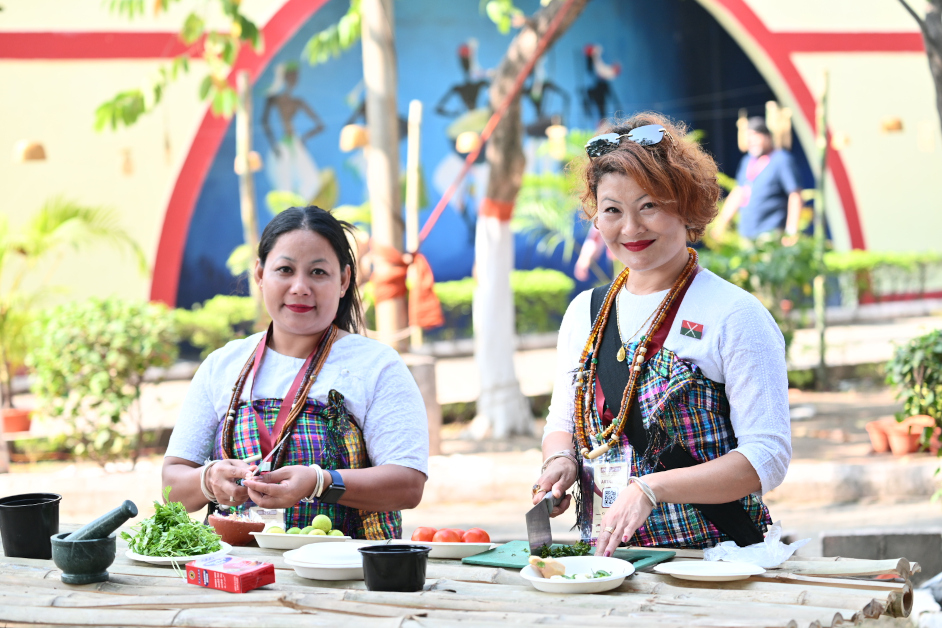
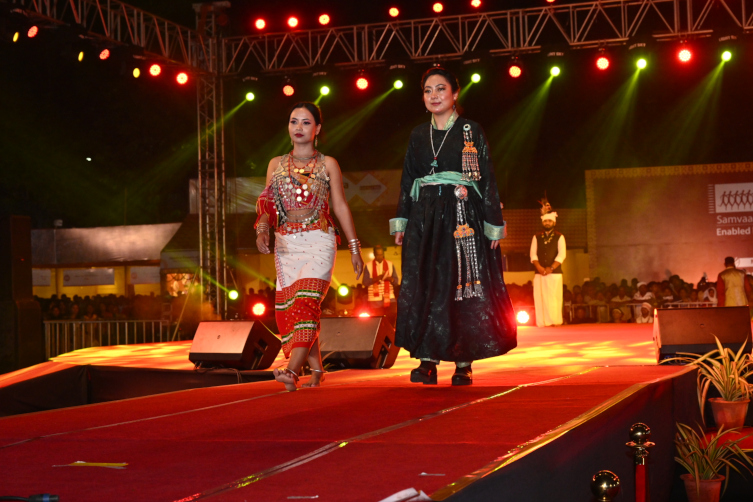
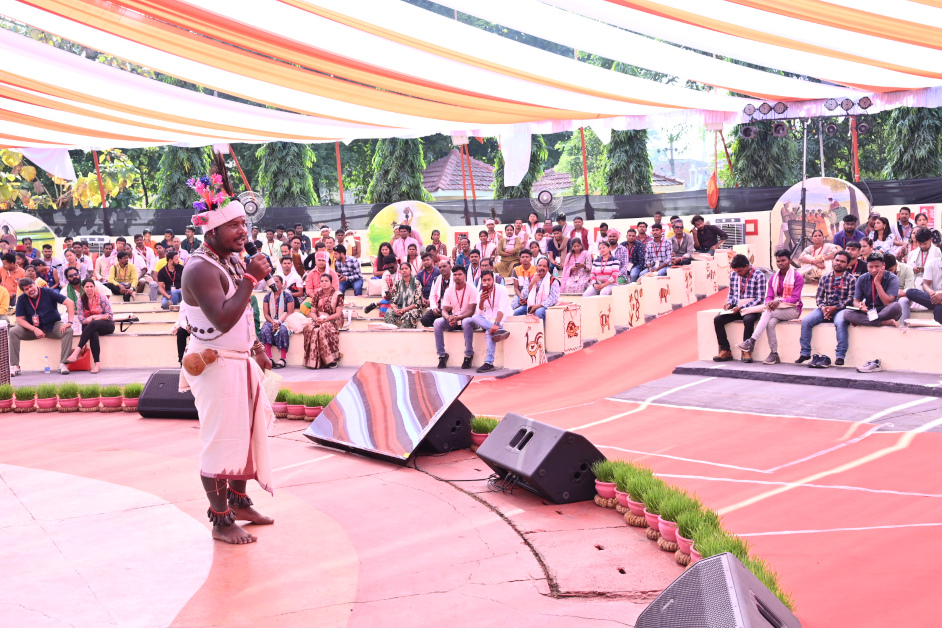
The conclave was spread across five locations in Jamshedpur to accommodate the offshoots of the Samvaad ecosystem that contribute significantly to its essence — the Akhras of conversations; a growing cohort of Samvaad Fellowship changemakers; Tribal Cuisines, whose wafting aromas carry anthropological narratives; a film festival that unveils untold tribal stories and honours the spirit of community through its Samuday Ke Saath outlook; the ancient wisdom of Tribal Healing Practices, the rich traditions of Tribal Art and Handicrafts, and more.
“If we have learned something from Samvaad it is that the intangible, that which is not visible, which is only felt, is a lot more important,” says Mr Roy. “The biggest intangible of them all is the samvaad itself. Samvaad is a process of meeting people, process of dialogue, listening to each other patiently — which we believe is half the solution, and which we have seen to sometimes actually be the entire solution… These five days of dialogue are just a start of a massive dialogue that will continue much beyond Jamshedpur and resonate across the country.”
—Monali Sarkar




